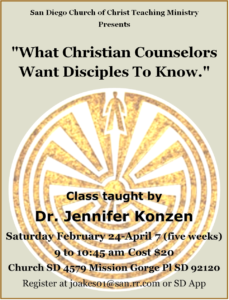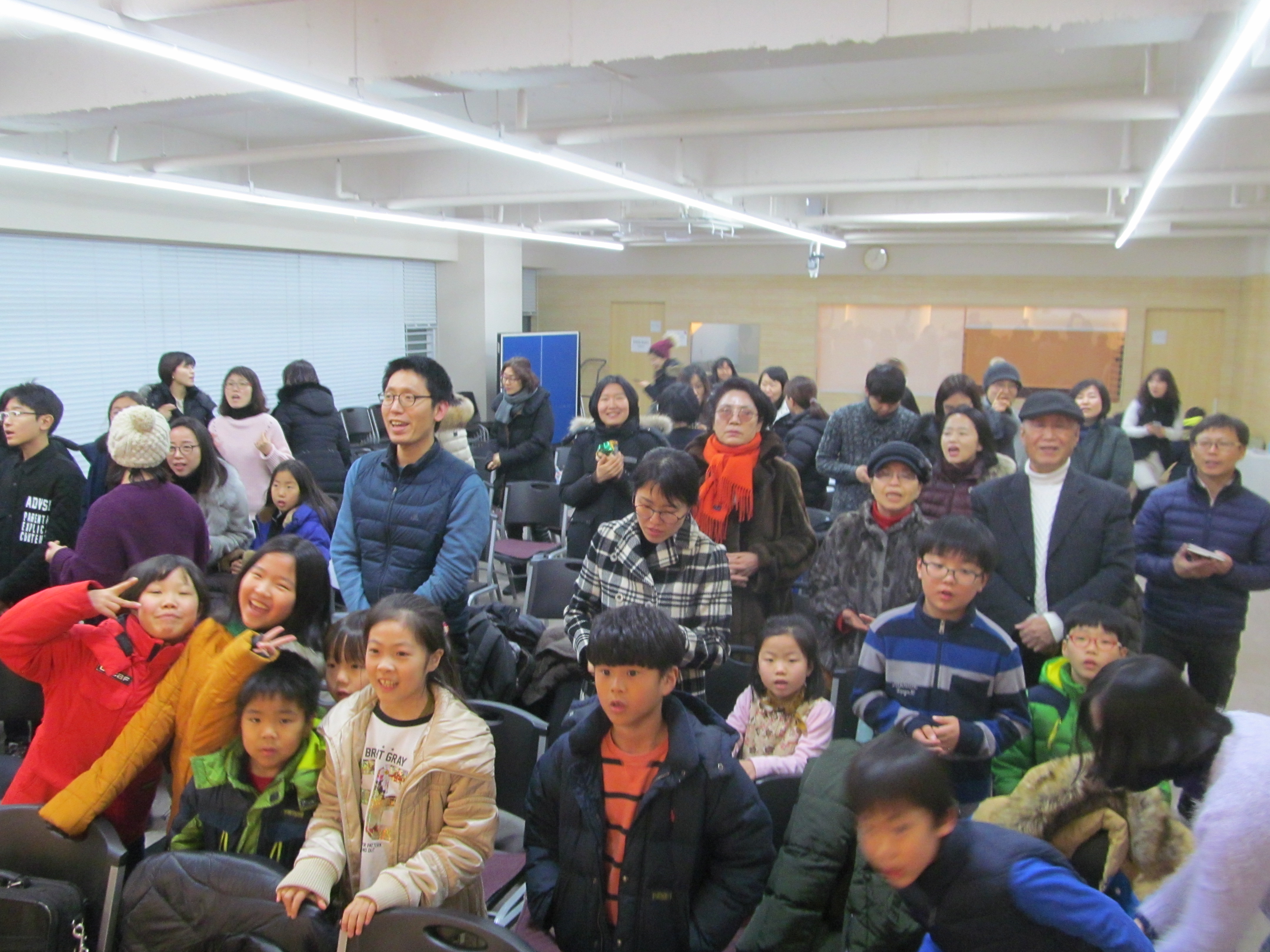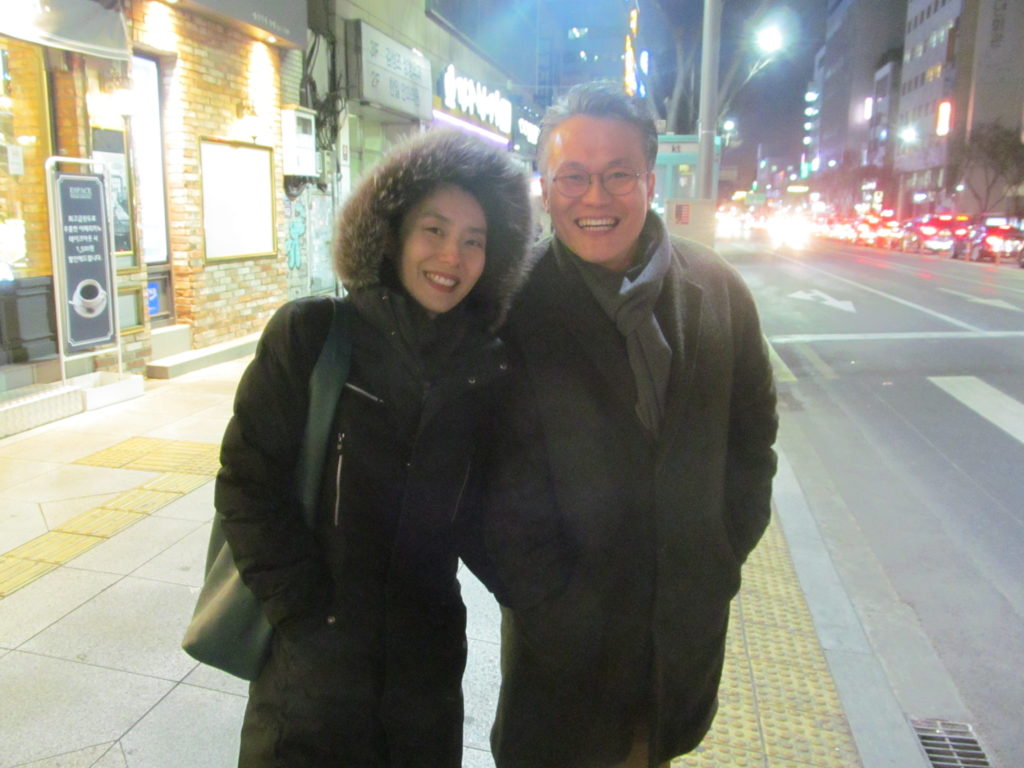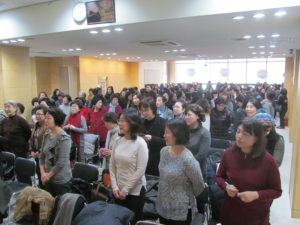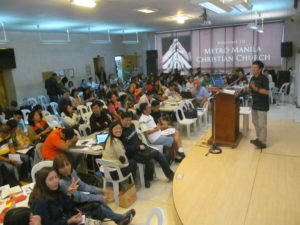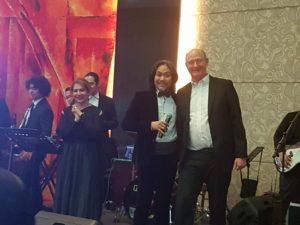ARS February Newsletter
Greetings to our subscribers. The last couple of months have been very busy for us.
Upcoming Events:
Our Spring class will be taught by Jennifer Konzen. It is What a Christian Counselor Wants Disciples to Know. If you live in the San Diego area, we invite you to attend. The brochure is below.
New Materials:
There is a lot of new material available at the site. I (John Oakes) taught a ten hour class on the Book of Genesis, Genesis: In the Beginning. I also taught a fifteen hour class on Christian Apologetics in Manila. You can find this in the article at the site of lessons from the Philippines. Also, I produced a series of group Bible Study outlines from First Corinthians and taught a class on Ezekiel and Daniel for the Los Angeles School of Ministry and Missions. You may need to do a search to find some of these articles. We are publishing below two articles I wrote recently. One is on prayer and one is a retrospective on the 500th anniversary of the Reformation.
A Big Announcement:
I will be retiring from teaching chemistry and physics full time this coming June. This is not an opportunity to slow down, for sure. My intention is to do more writing, more local teaching and more traveling to visit and teach for churches overseas. Hopefully, this will also create opportunity to put on additional Christian Evidence conferences. We will be needing more support from our subscribers to be able to take on these new works and would really appreciate you considering helping our ministry. You can make a contribution through the web site or contact us at joakes01@san.rr.com The help will make a big difference in helping bringing unbelievers to faith in Jesus and in supporting the faith of believers.
Remember, articles on prayer and on the Reformation are below!
Asia Missionary Teaching Trip, January, 2018
Jan 7-9 Dallas Texas
This is my first time being part of what is known as the Texas Roundup. This is an annual gathering of Christian leaders from Texas, Oklahoma, Louisiana, and this year, Kansas. More than 140 leaders gather for fellowship, teaching and inspiration to lead God’s church in the coming year. This meeting has been going on from at least twelve years.
First we hear good news from around the region. There were one hundred and forty baptism in the Dallas church, including 45 campus students. The church in College Station has grown from thirty-five to eighty-five members and sent out fifty-five to other churches, including interns and full time ministers. The Lawrence Church as grown from 55 to one hundred fifty. Many other blessings of a non-numerical nature were also mentioned. The first talk is by Tom and Kelly Brown. This is great joy for me personally, as Tom studied the Bible with me thirty-nine years ago when I became a Christian. The church he and Kelly help to lead saw seventy-five campus baptism and two hundred fourty overall last year. Their talk was on “Growing Your Church.” Their main point was praying for all the members of the church and committing to personal relationships which can raise up disciples of Jesus do their full potential.
I have been invited to give a series of talks about Christian Evidence. My first talk is on the Christian Worldview and why it is so obviously superior to other world views, such as atheism, postmodernism, Hinduism, Buddhism or Islam. Tuesday I teach classes on “Answering the Hard Questions” and “Evidence for Jesus.” The leaders here appreciate that even in Texas and Oklahoma, we are entering the post-Christian age and the kinds of evidence we need to use to help people come to faith in Jesus is changing. We also hear from Robert Carrillo, encouraging us to engage with HOPE Worldwide. It is a great joy to renew dozens of relationships with friends in Texas.
Seoul, Korea January 11-14
Wednesday is a travel day. In the middle of a fourteen hour flight to Incheon, Korea, we end up with an emergency landing in Anchorage. I land two hours late in Korea. We rush off to a midweek meeting in the satellite city of Ilsan for a lesson on God and science. This is a smaller city of about one hundred thousand. There are about one hundred at the service. I feel very warmly received, which is a good thing because it is very cold here. Seventeen degrees when I land and I hear it will get down to about two degrees Fahrenheit in the morning. As we return to the hotel, I am told that the border to North Korea is only about thirty minutes to the North.
Midweek in Ilsan, Korea
On Thursday morning I travel one and a half hours to Seoul to teach a three hour class on Church History, mostly for the church staff. There are about forty at the class. I am very impressed that a brother named Alexei who lives in Vladivostok, Russia traveled all the way to Seoul just to hear the classes I am teaching. I also meet a couple from Ulan Batur, Mongolia. Just yesterday I had been praying to find a contact for the church there, as I want to visit some time. Then the next day, I meet these two. Pretty encouraging.
This is my second time in Seoul. It is a city of fifteen million. It is a very busy and crowded city—the principle metropolis of a country of fifty million. This is the only country I have been where the parking lots have conveyor belts that carry the cars vertically into the parking lots. The food here is wonderful, but with all the fermented vegetables, especially kimchi, it is quite different for American palates. Of course, tension with North Korea is always present here, but right now there is discussion of peace talks, so it is slightly less tense than a few weeks ago, with the North firing so many intercontinental ballistic missiles.
The churches in Korea have about eight hundred members and six churches. The majority are in the Seoul area. They are led by Inhoe and Aeja Bae. Continuing the long day, I next travel by fast train to Daegu. The trip from the Northwest of Korea to the southeast is about three hundred kilometers, but with speeds of well over two hundred kilometers per hour, we arrive in only ninety minutes. The countryside is quite different from my experience. There are factories and high rises even in the countryside, dispersed among very well organized farms, and lots of mountains. This is a beautiful if crowded country.
I arrive in Daegu, a city of 2.5 million. I am told that this is a very conservative city. The majority here are Buddhists, yet I see many churches. Christianity has become a major force in this formerly predominantly Buddhist country. They seem to take their Christianity fairly seriously here, but then Koreans take almost everything seriously. Koreans are almost painfully polite. When I ask someone their opinion about controversial topics, they are too polite to express their thoughts, unless I insist. The politeness is different but also charming.
Leaders in Daegu
There are two churches here in the southern part of South Korea. One is here in Daegu, with about forty members. The other is in the second city of the country, Busan, with about fifty-five members. There is one full time leader couple here, Tongjin and Hyunji Kang. I speak on Living By Faith, from Hebrews 11. The disciples here are so encouraged, it is hard to describe. They have never had an outside speaker in the almost twenty years the church has been here. Many travel more than 100 kilometers from Busan for the class.
Lotte Tower 125 stories tall. A very impressive building.
Saturday morning includes an early morning train ride back to Seoul. I teach two classes, one on God and Science and one on Freedom in Christ. The house is packed, with about 250. Their faith is so impressive. I am hoping to visit the church there this year. Sunday is a great day. The men meet in the morning, with more than 250, and the women in the afternoon, again with more than 250. The singing is really beautiful. My lesson is Malachi: Faith or Faithful, about the need for us to be faithful to God. I spend the afternoon with Brandon Park and his beautiful family. They lead a region of the church. We travel to the top of the Lotte Tower. It is 125 stories tall—by far the tallest I have been able to go up in. Seoul is a beautiful city at night.
I am up around 4:00 AM for a flight to Cebu. Please consider visiting the churches in Korea. The church is mature and very loving. One thing that is needed is a revitalization of the campus ministry. Will one of you consider coming to this wonderful country for a one year challenge to help build the campus outreach in Korea?
Cebu, Philippines January 15-18
The flight to Cebu, Philippines is four hours. This is the second largest city in the Philippines. It is on the island of the same name. Cebu is one of the islands in the region of the Philippines known as the Visayas. This is the central section of the archipelago. They speak Visayan here. Of course all also speak English. Cebu is a city of about three million on an island with more than five million. This week is the festival of Sinulog. This is a massive Roman Catholic celebration, highlighted by the carrying of the Christ idol through the streets. More than one million come to the city from all over the world for the festival. The Catholicism here seems to me to be quite superstitious, yet the faith of the people seems sincere. People pay women to do a ritual dance and pray for healing, wealth or children. The city is practically shut down for this event.
It is good to get time with my good friends Danny and Gurly Cabadsan. They are the only full time paid staff for a church of 340. They really could use some help. The church has grown steadily. They were 250 last time I was here. I meet with the four sector leader couples for fellowship and a short lesson on Life in Christ. None of them are paid. I am so impressed by their service and love for God’s people. I would like to get around to see the city, but traffic due to Sinulog makes this really hard. Tuesday is two lessons for the Bible group leaders, one on Malachi, on having faith versus being faithful, and another from Paul’s farewell address. With a long question and answer session, the evening goes for over two hours. They are really hungry for the scriptures and to grow. It is great to see so many campus leaders. Wednesday I meet with the church. The lesson is on Freedom in Christ. The zeal and excitement are palpable.
Bible group leaders in Cebu
From my conversations with Danny I realize that they really could use some help here. They are self-supporting, but could really use campus or singles who would be willing to come here for several months or for the one year challenge to build up the singles or campus work. It would be so rewarding. People here are very warm and friendly, the food is great and English works. Please consider this.
Manila, Philippines Jan 20-23
I am here to teach for the Asia Pacific Leadership Acadamy, APLA. This is perhaps my seventh time in Manila. Despite the traffic and the hot weather, I love this city and the brothers and sisters here. The people are so sincere and make me feel very appreciated. The church in the metro Manila area has about two thousand two hundred members. There are more than thirty churches across the islands. Most of the churches are growing. A great need here is more help with the full time ministry staff, as many churches have no paid staff at all. Here in Manila there are groups of more than two hundred led by couples who work full time. This is doable, but a challenge. It would really help if some young singles or campus students would consider coming here for a one year challenge. Also, if an empty nester couple could come here they would find very fruitful service for God and be infinitely appreciated by the Christians here. Please consider this. Remember that English works here, so for many of you there is no language barrier.
APLA students and Rolan Monje, the principle teacher in Manila.
Manila is a city of nearly twenty-five million. It is bustling city. Make no mistake about it, the traffic here is legendary, but the people are very patient and so warm and friendly you have to experience it for yourself. There is a massive volcano about 200 kilometers to the south, near the tip of the island of Luzon which is erupting right now. The Philippines has many earthquakes, typhoons and volcanoes—more than its share of natural disasters. They are also experiencing a very controversial presidential administration under Duterte. The biggest problem here in the politics is massive corruption. Duterte promises to make progress on this, as he did when mayor of Davao on Mindanao, but his policies are brutal and thousands have died in extrajudicial killings. Not without reason, many fear a return to a military dictatorship, but others forgive his rude comments and unpredictable behavior because he promises stability and economic growth. Let us pray for the Philippines.
I am teaching a fifteen hour class on Christian apologetics. This is a three day commitment. Nearly all the students have regular jobs, yet there are about one hundred forty students making this commitment. I am really impressed. The schedule for me is tough, with teaching eight hours a day, plus being sick, but it is so rewarding seeing these students, many of college age soaking up the knowledge, wanting to share with their friends.
After teaching for three hours, I travel to downtown Manila to preach for one of regions of the church here. Four “sectors” combine for the service, with eight hundred members. There are well over nine hundred in attendance. This group is very encouraged. Their theme for the year is You are the Light of the World, so I preach a sermon on Being the Light. Afterward, I am honored to attend a 50th birthday party for Lili, one of the sisters. The highlight for me was a concert by Tyrone Ty and his band. He is the worship leader for the church. They are amazing. Monday AM I am off early for home.
John Oakes 1/23/18
What is Prayer and Why Do We Pray?
Let us start with two questions:
- What is prayer to you?
- Why do you pray?
Either write down your answers to these questions or at least take the time to voice your answers to yourself.
- What is prayer?
Think about your prayer life. Is your prayer talking to God or is it talking with God?
Also, what is the purpose of you praying?
For myself, as I grew up as a Christian, the model for prayer was what I saw in a public prayer. When people are praying in public, obviously they talk. If they stop talking, then the prayer is over. So, to me, prayer is talking to God, or at least that is how I viewed it for many years.
But there are two problems with this.
- Communication is a lot more than words. and
- Communication, by its very definition is two-way.
Romans 8:26 In the same way, the Spirit helps us in our weakness. We do not know what we ought to pray for, but the Spirit himself intercedes for us with groans that words cannot express. And he who searches our hearts knows the mind of the Spirit, because the Spirit intercedes for the saints in accordance with God’s will.
Think about that moment when you communicated your deepest desires and feelings to someone who you deeply love. It might be that look you exchanged with your spouse when the two of you first realized you are in love with each other. That look said it all. Words simply do not express our most profound feelings. Prayer is not just talking. Prayer is feeling. Prayer is receiving a message. The Holy Spirit helps is to express those deepest feelings to God. And this is a two-way street. He also communicates God’s deep desire for us. Sometimes in our prayer we need to stop talking. We need to “be still and know that I Am God.” (Psalms 46:10).
There is a spiritual discipline that most of us have not developed, and I will add myself to the list of novices in this area. It is meditation. Prayer may be talking, but it is also meditation. Meditation is not just for our Hindu friends. We need to take it back for use in Christian prayer. David meditated, not by saying a mantra, but by contemplating God’s glory. In Psalm 119:27 he tells us that “I will meditate on your wonders.” In Psalm 77:9, Asaph tells us, “I will meditate on all your works and consider all your mighty deeds.” This cannot be done while talking. In Psalm 48:9 the Sons of Korah tell us that, “Within your temple, O God, we meditate on your unfailing love.” Prayer that God seeks from us includes meditation.
What is prayer? It is a lot of things. To break it down to just one of them is a mistake, but one of those things prayer involves is communicating on the deepest possible level our feelings and desires to God and God doing the same with us. Let us consider prayer, not just as talking, but as feeling and meditating. Let us consider the role the Holy Spirit plays in this and let us consider being trained to be still—to stop talking and to meditate on God—on his wonders, on his works and on his unfailing love.
- Why do we pray?
If we have a more complete understanding of what prayer is, then we will have a greater understanding of why we (hopefully) pray. Of course, one reason we pray is that we are commanded to pray. But consider your most valued relationships. If these relationships are truly valued, then surely you do not communicate with those you love because you “have” to. In fact, if you have to, then that is not love.
Here are three much better reasons for you to consider as to why we pray. Our purposes in prayer include:
- To give glory to God.
- To align our heart with God’s will.
- To influence God and be influenced by him through relationship.
Probably the best go-to place, both for how to pray and why to pray is found in Luke 11:1-4 and Matthew 6:9-13. Here the disciples, who have been praying their whole lives, realize that Jesus is the master prayer. Therefore, in humility, they ask him how to pray. In his response to them, we can see all three of the points above.
First, Jesus begins his model prayer by giving glory to God. All honor and praise belong to God and to God alone. My personal favorite example of this in the Scripture comes, not surprisingly, from the mouth of the second greatest prayer of all time—David. It is in 1 Chronicles 29:10-20. “Yours, O Lord, is the greatness and the power and the glory and the majesty and the splendor” By this time, David is consulting his thesaurus, as he is running out of words. But he is not running out of reasons to give Glory to God. First and foremost, the reason we pray is to give glory to the God who created us—to the God of all comfort, love, power and dominion who deserves our eternal praise and who sits in glory in heaven, amen!
Second, we pray so that our hearts and desires can become aligned with God’s will for our own lives and for the world as a whole. Jesus says in his model prayer, “Your kingdom come, your will be done, on earth as it is in heaven.” Does this mean that God’s will is not always done? I thought that God was totally sovereign. In fact, God’s will is not always done because there are creatures who have free will, whose wills very often do not align with the will of Him who created them. In prayer, we seek to align our desires with those of our Father in heaven. We offer ourselves in submission. We pray for things, but we expect God to give us those things only if it is according to his will, right? In 1 John 5:14-15 we are told that anything we ask that is in accord with his will we will receive. For this reason, as we pray, we are trying to align our will with his will.
The third reason we pray goes back to the first part of this lesson. The greatest purpose of prayer is to give glory to God. In prayer we align our free wills with God’s will. Both true, but in the end, prayer is two-way communication. In prayer, God presents his deepest desire for us—his will for our lives and for the whole world. But in prayer, we also lay bare our deepest desires to God. It is surely one of the greatest mysteries that the Creator of the Universe wants to be influenced by puny little us. In prayer, we move the universe. Well, it is not exactly us moving the universe, but it is us moving God who then moves the universe. In his model prayer, in Matthew 6:11 Jesus prayed that God “give us our daily bread.” In prayer, we present our requests before the most powerful person in the universe, knowing that if it is according to his will, that he will make it happen. “By prayer and petition, with thanksgiving” we “present our requests to God.” (Philippians 4:6) Our prayer moves the universe, and this is one reason we pray, because when we ask, we receive. But let us remember a few things about this.
- First, let us give glory to God.
- Second, let us first do our very best to align our desires with God’s will.
- Third, let us remember that our presentation to God of our desires will be greatly helped by the Holy Spirit, who speaks for us in groans that words cannot express. Let us sometimes stop talking, meditate, communicate and let us “be still and know that I am God.”
John Oakes
A Reflection on the 500th Anniversary of the Protestant Reformation
There is much interest in the Christian world on the 500th Anniversary of the Protestant Reformation. Even in mostly-atheist Germany, awareness of the history of this world-changing set of events is high. Of course, the exact date of the Protestant Reformation is debatable, but we traditionally date the movement from October 31, 1517, which is the day when Martin Luther posted his famous 95 thesis on the cathedral door in Wittenberg—the starting gun for the Reformation.
What exactly is the Protestant Reformation? What is its legacy, both positive and negative? Are we, as Bible-believing and Bible-obeying Christians, Protestants? Perhaps most importantly, what practical lessons can we learn from the momentous events which in many ways led to the modern world?
First of all, we should introduce ourselves to the great heroes of the Reformation. The big three are Martin Luther, Ulrich Zwingli and John Calvin. And of course, there are many lesser heroes as well. Luther, Zwingli and Calvin are all complicated men, with incredible strengths, but also with fatal flaws in their character. Are they heroes of Christianity? By almost any measure the answer is yes. All three showed remarkable physical courage and gave up nearly everything in order to pave the way so that we can worship God according to our conscience, with the Bible as our only standard of faith and truth.
Luther was a man of miraculous resolve. His zeal was for Jesus and for his church. In the face of almost certain death at the hands of the Catholic Church and the Catholic princes, he began a reform in Wittenberg which overturned centuries of dominance over Christendom by Rome and the pope. He created the first translation of the entire Bible into his native German, returning the scriptures to the people. He abolished the most egregious Catholic practices such as indulgences, the system of penances, Roman sacramentalism and reliance on works-based salvation. His discovery from the Book of Romans that salvation is by faith marked one of the greatest turning points in the history of the faith. Yet, his reform did not return Christianity to its biblical roots. His faith-alone doctrine caused him to reject James, as he had taught that faith without deeds is dead. His theology was that of the fifth-century theologian Augustine. He maintained a strict church-state structure. He continued the practice of infant baptism, despite the obvious fact that infants cannot have faith. The Catholic Church, under the influence of 13th century theologian Thomas Aquinas, taught a fairly healthy balance between the sovereignty of God and free will on our part. Luther reversed this to a strict predestination, as taught by Augustine. One can argue that although Luther made fantastic strides in restoring Christian practice, he moved theology in the wrong direction.
Most of those we would call Protestants actually trace their theology and practice to the Swiss reformer Ulrich Zwingli and the French theologian John Calvin. The two brought about a more radical and thorough reformation than that of Luther. Theirs is known as reformed theology. Most evangelicals are of a reformed rather than a Lutheran faith. Zwingli headed a church/state in Zurich. He went beyond Luther in removing vestiges of unbiblical practice. Zwinglian worship services have been called, “four walls and a sermon.” Like Luther, he restored the Bible to the common people. Yet his Augustinian predestination was even more thorough than that of Luther. He declared that those who are predestined by God to hell give glory to God equally with those predestined to heaven. Wanting to maintain infant baptism as a means to establish citizenship in a Christian state, he created the idea that baptism is a kind of Christian circumcision—a symbol of membership in God’s kingdom. We can see where this unfortunate choice led. Zwingli was a head of state and a soldier as well. He die in battle defending the Swiss Reformation against a Catholic army.
The greatest theologian and Bible scholar of the Reformation was John Calvin. He reluctantly headed a theocracy in Geneva. It was his Christian Institutes that solidified normative Reformed theology, doctrine and practice. His theological system, Calvinism, made Augustinian predestination standard in almost all of Protestantism. Even if they are not aware, most of our Christian friends are Calvinist, which explains their embracing the once-saved-always-saved doctrine.
Less well known is another Reformation which burst out, beginning from within Zwingli’s movement in Zurich. This “Radical Reformation” featured a rejection of church and state. Zwingli himself initially recognized that the only correct form of baptism is by immersion of adults, but he was unable to accept the implication of rejecting infant baptism on citizenship in his Christian state. Instead, he began to violently persecute these rebaptizers who thus became known as Anabaptists. Catholic, Zwinglian and Lutheran could not agree on much, but one thing they agreed on is that this rebellious Christ-like group must be suppressed. Catholics burned them at the stake, while Lutherans and Zwinglians drowned them. For a time, preparation for baptism of brothers and sisters was really preparation for martyrdom. Literally every one of the early leaders of this movement was martyred for their faith. Christian Europe was not yet ready to accept true Christianity with Jesus as the only head of the Church.
Are we as New Testament Christians Protestants? The simple answer is no. In the International Churches of Christ, our historical roots go back to the Restoration Movement in the United States in the 1820s and 1830s. This was a back-to-the-Bible movement which rejected denominationalism, and specifically Protestant denominationalism in order to embrace Christian unity based on the essentials of the Bible alone. Leaders such as Alexander Campbell and Barton Stone recognized their debt to the great reformers, but did not accept their unbiblical creeds.
How, then, should we think about this, arguably the most important turning point in Christian history? First of all, despite their faults, and they were many, we need to honor and appreciate what Luther, Zwingli, Calvin and many lesser-known reformers did to restore Christian practice. Their courage and zeal for God’s people is an inspiration. Even if we do not wholeheartedly accept their doctrines, we can give honor where honor is due and recognize that, without them, our Christian faith today would not be what it is. Their willingness to lose everything, including their very lives for the sake of the gospel is an upward call to all of us. Yet, although they did wonderful things to restore Christian practice and to restore the scripture to believers, the Protestant Reformation fell far short of reestablishing correct biblical doctrine and theology. These men restored orthopraxy (correct practice) but not orthodoxy (correct teaching). Rather than restoring New Testament teaching, they only went back to Augustine. To embrace a Calvinist/Augustinian predestination is to reject the truth that God loves all and that he “wants all people to be saved and to come to a knowledge of the truth.” Their rejection of biblical freedom and their relegation of Christian baptism to a mere symbol are teachings that we must reject as unbiblical and as a stumbling block to salvation.
Of course, there is a part of the Reformation that we can enthusiastically embrace. We can be inspired by the supernatural courage of our Anabaptist brothers and sisters. The Anabaptists were not without their faults, but neither are we. Perhaps you can get into a conversation with a Hutterite, Mennonite, Brethren or Amish friend. You would perhaps be surprised how much you have in common. However, there is one weakness of this movement that we should not embrace. Under the most extreme pressure of persecution, understandably, most of the Anabaptists chose to remove themselves from the world. They rightly rejected the ways of the world, but took this too far, choosing instead to isolate themselves from those who hated them. Within two or three generations, these disciples virtually stopped evangelizing the lost. As we celebrate the five hundredth anniversary of the Protestant Reformation, let us embrace the zeal, vision, and passion of all the reformers, not just the Radical Reformation, but let us take on a renewed zeal to establish the Church that Jesus died for and let us not withdraw from the world, but rather let us make disciples of all nations, baptizing them in the name of the Father, the Son and the Holy Spirit, and surely, Jesus will be with us always, to the very end of the age.
John Oakes

